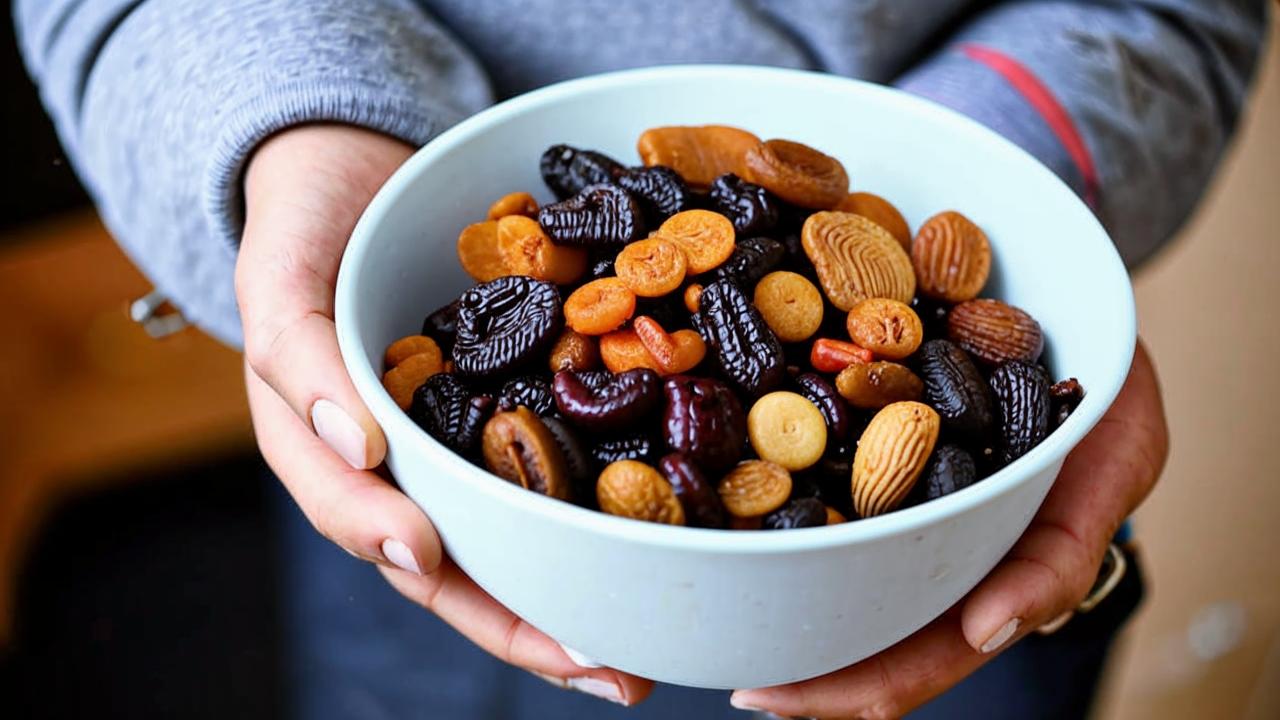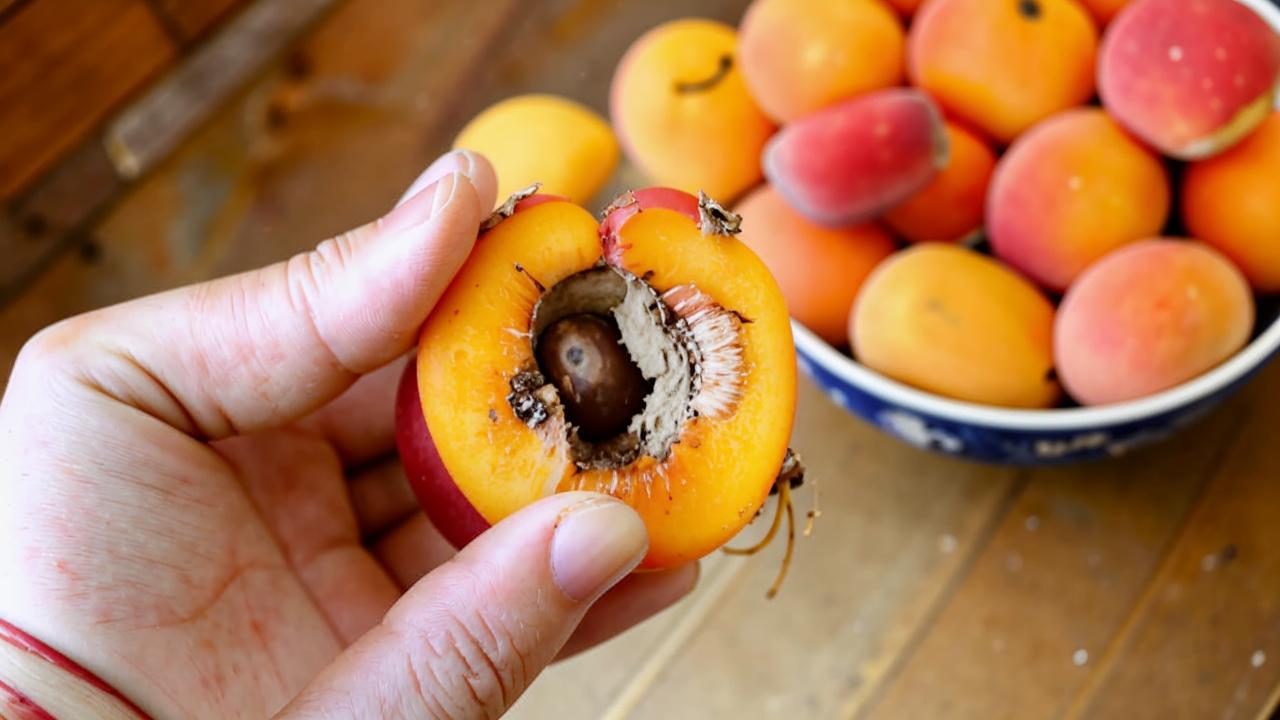
family nutritionist, expert (MIIN), lecturer of the course “Integrative Pediatric Nutritionist” from MIIN
“In summer, we stock up on vitamins heavily with seasonal vegetables, berries and fruits. Apricots are one of the most popular and much-loved fruits that not only have a pleasant taste and smell, but also valuable nutraceutical properties for health.”
Benefits of apricots for the body
The composition of the apricot makes it a valuable crop and is important for a complete diet.
Apricots contain organic (also called fruit acids) – citric, tartaric, malic acids, which are known for their positive effects on the gastrointestinal tract (GI tract):
- increased secretion of gastric juice;
- improve digestion and motility of the GI tract.

In addition, organic acids help maintain acid-base balance, and prevent the formation of carcinogenic nitrosamines, reducing the risk of cancer.
Apricots are rich in potassium:
- 100 g of fresh fruit provides up to 6% of the daily requirement;
- 100 g apricots provide up to 25% of the daily requirement.
Potassium is necessary for the body as a mineral and electrolyte that supports the normal functioning of the cardiovascular, muscular and nervous systems, as well as water and salt balance.
Did you know.
- Not every dried apricot is called apricots.
- Kuraga is the dried halves of seedless apricots.
- Uryuk is a dried whole (usually small size) fruit with a seed.
- Kaisa is a dried whole fruit without a seed.

Carotenoids – another important component in the composition of apricots, among which the highest content of beta-carotene – 100 g of fresh fruit provide up to 22% of the daily norm. They eliminate the effects of oxidative stress, as well as participate in the maintenance of the body’s immune system.
Apricots are an important source of sugars and fiber. They contain fructose, sucrose, glucose, and maltose.
Studies confirm the benefits of fiber for the intestinal microbiome, functioning of the GI tract, as well as the effectiveness in the complex therapy of obesity and cardiovascular diseases.
Apricot – the object of regular medical research, and all parts of the plant are involved in the experiments, and the benefits can be obtained from many types of apricot preparations – oil, pulp extract, stone.
Bactericidal action
Consumption of some varieties of apricot inhibits the development of Helicobacter pylori and reduces inflammation of the mucous membrane.
Analgesic effect
Analgesic and anti-inflammatory activity has amygdalin – a plant glucoside of apricot seeds.
Cardioprotective effect
The results of studies show that apricot seed oil can be used in the complex therapy and prevention of myocardial infarction.

Prevention of neurodegenerative diseases
Alzheimer’s disease is characterized by the accumulation of amyloid protein, but its activity is effectively suppressed by apricot carotenoids, as tests have shown.
Recommended amount of apricots per day
Remember the principles of a balanced diet, where not only moderation is important, but also the variety of food, including in the consumption of fruit. Rospotrebnadzor recommends consuming no more than 300 g of apricots per day.
Even such a useful fruit has contraindications:
- GI diseases in the stage of exacerbation;
- individual intolerance;
- renal insufficiency.
In addition, it is not recommended to eat apricots on an empty stomach because of the risk of a sharp increase in blood sugar and irritation of the mucous membranes of the GI tract, since they contain organic acids.
Danger of eating large quantities of apricots
Limitations for diabetics
There are 9 g of sugars per 100 g of fresh apricots. And although the glycemic index of fresh fruit is 34, and apricots – 30, diabetics need to consume the fruit carefully, controlling blood sugar levels.
Use of apricot seeds
The amygdalin contained in them has many useful properties, so apricot seeds have great potential for creating medicines and dietary supplements on their basis. They can be used:
- for the therapy of cardiovascular, oncological, as well as skin diseases, since the substances exhibit antioxidant, antimicrobial, anti-inflammatory and wound-healing properties;
- for the treatment of atherosclerosis, as they help reduce the level of “bad” cholesterol.

However, amygdalin under the influence of chemical reactions in the body is converted into a toxic compound – hydrocyanic acid. In small doses, the body is able to cope with the poison on its own, but with regular use, intoxication is possible. Children need very little for poisoning – 8-12 apricot seeds.
Processing of dried fruit
To improve the appearance of store apricots are treated with sulfur dioxide (preservative E220). For healthy people, this additive is not dangerous, but in asthmatics sulfur dioxide even in low concentrations can cause allergic reactions. It is worth refraining from using store apricots and prepare dried apricot fruit yourself.
Thoroughly chew dried fruit
Cases of intestinal obstruction have been recorded with poor chewing of apricots: the fruit clogged the lumen of the small intestine.
Including apricots in the daily diet is a simple and tasty way to improve health, but it is important to observe the measure and take into account the individual characteristics of the body.





